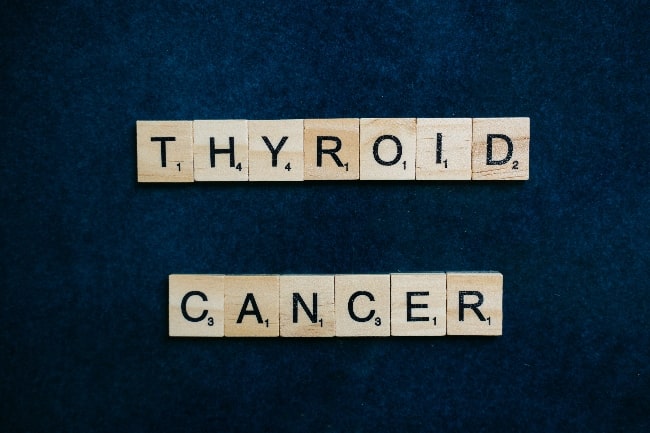Hypothyroidism is a common disorder in which the thyroid produces and releases insufficient thyroid hormone into the bloodstream. This causes your metabolism to slow. Hypothyroidism, also known as underactive thyroid, can cause tiredness, weight gain, and an inability to tolerate cold temperatures.
Hormone replacement therapy is the primary treatment for hypothyroidism. According to the best thyroid doctor nj
“Hypothyroidism is a condition in which the thyroid does not produce enough thyroid hormones, resulting in symptoms such as weight gain and fatigue.”
Medications and lifestyle changes may help relieve symptoms.
Myxedema develops when your thyroid levels are extremely low. Myxedema is a highly dangerous illness that can produce major symptoms such as –
- Heart failure
- Confusion
- Coma
- A low body temperature
- Anemia
This extreme form of hypothyroidism is dangerous and is a treatable illness in general with regular prescriptions and follow-up sessions with your doctor.
Symptoms And Causes
What Causes Hypothyroidism?
Hypothyroidism can have a primary or secondary cause. A major cause is a disease that affects the thyroid directly and causes it to produce low quantities of thyroid hormones.
A secondary reason is something that causes the pituitary gland to fail, preventing it from sending thyroid stimulating hormone (TSH) to the thyroid and balancing the thyroid hormones.
Primary hypothyroidism causes are far more common. The most prevalent of these fundamental causes is Hashimoto’s disease, an autoimmune illness. This illness, also known as Hashimoto’s thyroiditis or chronic lymphocytic thyroiditis, is genetic (inherited). In Hashimoto’s disease, the body’s immune system attacks and damages the thyroid. This interferes with the thyroid’s capacity to create and release sufficient thyroid hormone.
Other common causes of hypothyroidism include:
- Thyroiditis (thyroid infection)
- Treatment of hyperthyroidism (radiation and surgical thyroid ectomy)
- Iodine insufficiency (a lack of iodine in your body, which your thyroid utilizes to produce hormones)
- Hereditary conditions (a medical issue that runs in your family)
- Thyroiditis can occur after a pregnancy (postpartum thyroiditis) or as a result of a viral disease in some situations.
What Causes Hypothyroidism in Pregnancy?
Hashimoto’s illness is the most common cause of hypothyroidism during pregnancy. In this autoimmune condition, the body’s immune system targets and damages the thyroid. When this happens, the thyroid is unable to create and release sufficient levels of thyroid hormones, affecting the entire body.
Pregnant women with hypothyroidism may feel extremely exhausted, have difficulty coping with low temperatures, and experience muscular cramps. Thyroid hormones influence prenatal development. These hormones aid in the development of the brain and nervous system. It is critical to control your thyroid levels throughout pregnancy if you have hypothyroidism.
If the fetus does not receive enough thyroid hormone during development, the brain may not grow properly and problems may arise later. Untreated or inadequately managed hypothyroidism during pregnancy can result in issues such as miscarriage or premature labor.
Does Birth Control Affect My Thyroid?
Birth control medications contain estrogen and progesterone, which can interfere with thyroid-binding proteins. This raises your level. If you have hypothyroidism, your prescription dose will need to be raised while taking birth control tablets. When you quit using birth control tablets, the dosage must be reduced.
Can Hypothyroidism Cause Erectile Dysfunction?
In rare cases, there may be a relationship between untreated hypothyroidism and erectile dysfunction. When hypothyroidism is caused by a pituitary gland problem, you may also have low testosterone levels. If the erectile dysfunction was caused directly by the hormone imbalance, treating hypothyroidism will typically help.
What are the Symptoms of Hypothyroidism?
- Tiredness (fatigue)
- Numbness and tingling in your hands
- Suffering from constipation
- Putting on weight
- Soreness throughout your body (may include muscle weakness)
- Having blood cholesterol levels that are higher than normal
- Feeling down
- Inability to endure chilly temperatures
- Having rough, dry skin and hair
- Having a reduction in sexual interest
- Having heavy and frequent menstrual cycles
- Observing physical changes in your face (such as drooping eyelids and puffiness in the eyes and face)
- Your voice becomes lower and hoarser
- Feeling increasingly forgetful (“brain fog”)
Will Hypothyroidism Make Me Gain Weight?
You may gain weight if your hypothyroidism is not managed. Weight loss should begin as soon as you begin treating the illness. To lose weight, you will still need to control your calories and exercise. Speak with your doctor about weight loss and developing a diet that works for you.
Diagnosis and Tests
How is Hypothyroidism Diagnosed?
Hypothyroidism can be difficult to diagnose because the symptoms are often mistaken for those of other illnesses. Consult your doctor if you are experiencing any of the symptoms of hypothyroidism.
The thyroid stimulating hormone (TSH) test is the most commonly used to diagnose hypothyroidism. Blood testing for illnesses such as Hashimoto’s disease may also be ordered by your doctor. If your thyroid is enlarged, your provider may be able to feel it during an appointment physical exam.
Management and Treatment
How is Hypothyroidism Treated?
Most hypothyroidism instances are treated by supplying the quantity of hormone that your thyroid no longer produces. Typically, this is done with a drug. One regularly used medicine is called levothyroxine. When taken orally, this medication raises the amount of thyroid hormone produced by your body, bringing your levels back into balance.
Hypothyroidism is a treatable condition. However, you will need to take medication for the rest of your life to normalize the level of hormones in your body. You can live a normal and healthy life with careful management and follow-up meetings with your healthcare practitioner to ensure your treatment is working properly.
What Happens if Hypothyroidism is Not Treated?
If you do not seek treatment for hypothyroidism, it can progress to a serious and sometimes fatal medical condition. If you do not get treatment, your symptoms could get worse and include the following:
- Having mental health issues
- Having difficulty breathing
- Inability to maintain a normal body temperature
- Cardiac problems
- Developing a goiter (thyroid gland enlargement)
- Myxedema coma is a dangerous medical disease that can occur which can occur if hypothyroidism is not treated.
Is It Possible to Prevent Hypothyroidism?
Hypothyroidism is unavoidable. Watching for indicators of hypothyroidism is the greatest approach to avoid developing a major version of the ailment or having the symptoms negatively disrupt your life. If you are experiencing any of the symptoms of hypothyroidism, the best thing you can do is consult with your doctor. Hypothyroidism is very treatable if detected early and treated.
Is There Anything I Can Eat To Help With My Hypothyroidism?
You don’t need to worry about your diet because most items in Western diets include iodine. Iodine is a mineral that helps the thyroid in the generation of hormones. One theory is that if you have low thyroid hormone levels, eating foods high in iodine can help boost your hormone levels.
The most dependable way to boost your hormone levels is with a prescription medication from your doctor. Do not try any new diets without first consulting with your provider, especially if you have a medical condition such as hypothyroidism.
- Eggs are an example of an iodine-rich food
- Products derived from milk
- Meat, poultry, and fish are all options
- Seaweed that can be eaten
- Salt iodized
Create a meal plan with your healthcare physician or a nutritionist (a healthcare expert who specializes in food). Your fuel is your food. Making sure you eat foods that are good for your body, as well as taking your prescriptions as directed by your healthcare practitioner, will help you stay healthy over time. People who have thyroid problems should avoid consuming significant amounts of iodine since the result may be paradoxical (self-contradictory).
Conclusion
In some moderate cases, you may not experience hypothyroidism symptoms, or the symptoms may fade with time. In some circumstances, the symptoms of hypothyroidism will resolve quickly once you begin medication. Hypothyroidism is a life-long illness that requires constant pharmaceutical management for patients with especially low thyroid hormone levels.


